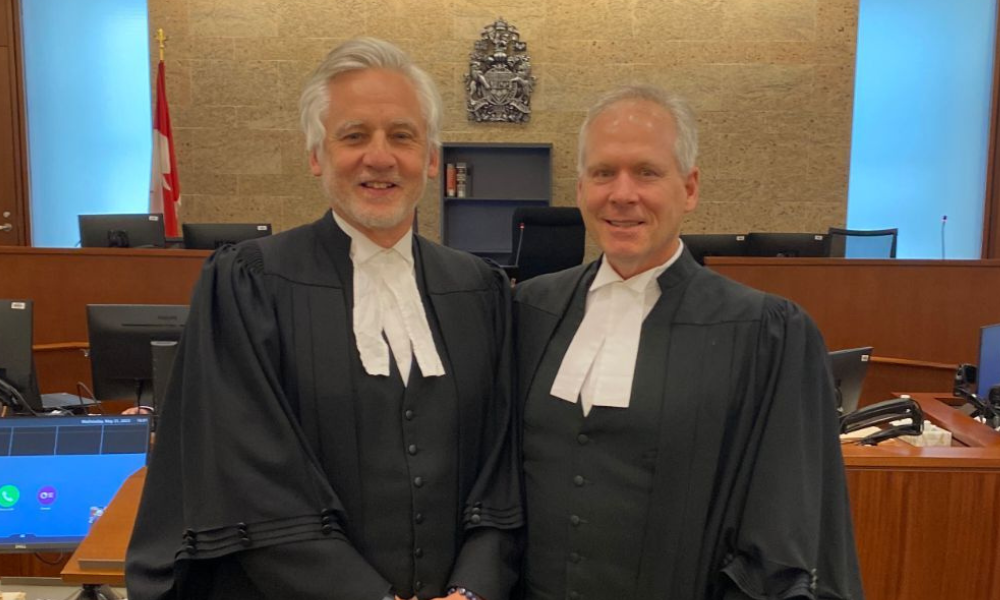Case involved first use of Stinchcombe order in immigration context, says lawyer

The Federal Court of Canada has denied the federal government’s attempt to revoke the citizenship of a man accused of committing war crimes and concealing from immigration officials his military affiliation during the Bosnian civil war.
In Canada (Citizenship and Immigration) v. Jozepović, 2023 FC 1660, the plaintiffs, the ministers of Citizenship and Immigration and Public Safety and Emergency Preparedness, accused the defendant, Božo Jozepović, of hiding his involvement with a Croatian military force called the Hvatsko vijeće obrane (HVO), and participating in a mass murder of Muslim Bosnians. Federal Court Justice Richard Bell found that the plaintiffs were unable to prove that Jozepović participated in any such war crime and, therefore, could not revoke his citizenship on the basis that he did not tell the authorities that he was a member of the HVO.
“It's an extraordinary decision,” says Toronto immigration lawyer Ron Poulton, who represented Jozepović with Edward Babin. “Probably one of its kind in immigration for many reasons. A full trial, which is very rare, on issues around war crimes and crimes against humanity with the full evidentiary protections that exist in a trial, which was the reason we won.”
It was the first immigration case where the court permitted a Stinchcombe order, he says. The 1991 Supreme Court of Canada case R. v. Stinchcombe established that prosecutors must disclose all evidence to the defendant in criminal trials. The order revealed that the Government of Canada had sent RCMP officers to Bosnia in 2007 to investigate the allegations against Jozepović and that the officers had concluded there was no evidence implicating him in the murders.
“That was an extraordinary feature of this case,” says Poulton. “I don't think ever has a defendant relied on evidence from a government police official to support their own case. That’s just one small part of this.”
The accusations at the heart of the case arose from events occurring in June of 1993 in predominantly Croat villages in the eastern part of Kakanj municipality in Bosnia and Herzegovina. These events followed the country’s establishment of independence from Yugoslavia and the beginning of a civil war involving Bosnians, Croats, and Serbs.
The plaintiffs said Jozepović had participated in the mistreatment of the Muslim civilian population, had been involved in the killing of seven Muslim Bosnian men, and lied to Canadian immigration officials about his HVO membership. The plaintiffs sought to make him inadmissible to Canada by demonstrating that he obtained his citizenship by concealing material circumstances. Jozepovic had arrived in Canada as a refugee in 1997 and became a citizen in 2004.
Based on expert evidence, Bell accepted that seven Muslim men were killed in Kakanj in June 1993 and that the HVO committed a massacre in the village of Stupni Do in October of that year. But the judge said there was no evidence that Jozepović was involved in or knew about the killings. While Bell concluded he had served in the HVO, the evidence did not demonstrate whether he served in combat at any point. Bell said the evidence showed that Jozepović was present when the HVO rounded up and detained Muslim civilians at a local school. But while two captives were assaulted, Bell said that none died or suffered severe injuries, and they were eventually released.
During his permanent residency application, Jozepović said that he was employed in “civil defence” and did not specify that he was a member of the HVO. The federal government argued that Jozepović was withholding the fact that he was an HVO member, which counted as “knowingly concealing material circumstances” and allowed the Minister to revoke citizenship under s. 10.1(1) of the Citizenship Act. But Jozepović argued that the government was required to prove, on a balance of probabilities, that he committed an act constituting an offence under the Crimes Against Humanity and War Crimes Act before they could show that he knowingly concealed material circumstances. Commission of such an offence deems a foreign national inadmissible to Canada under s. 35 of the Immigration and Refugee Protection Act.
Bell concluded that Jozepović was correct, and the federal government was required first to prove he was inadmissible under s. 35. The judge also found there was no evidence that Jozepović was involved in or had any knowledge of any HVO war crime, so the feds could not prove he was inadmissible under s. 35.
Because the federal government made serious allegations against Jozepović that they could not prove, Bell found that an enhanced award of costs was appropriate. The judge ordered the plaintiffs to pay Jozepović $125,000.










